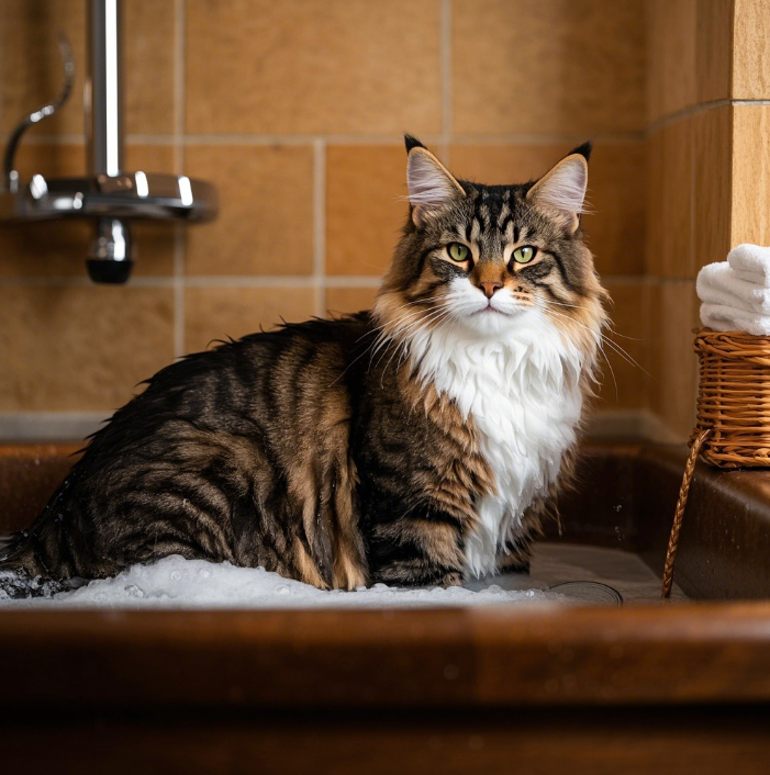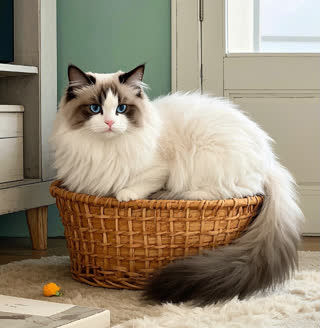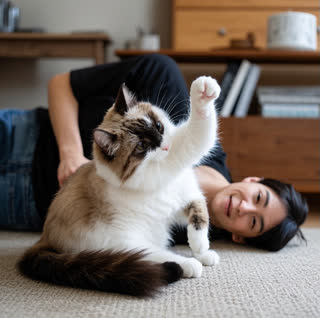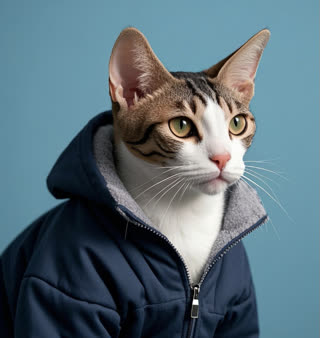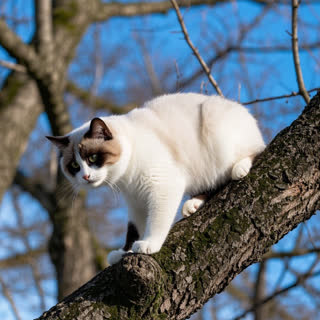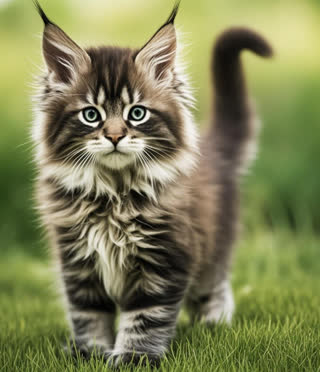1. The Maine Coon Cat Breed: Origins and Characteristics
Coat: Thick, shaggy fur with a dense undercoat for insulation and a coarse outer layer to repel moisture.
Temperament: Sociable, dog-like loyalty, and playful—ideal for families.
Health: Generally robust, though prone to genetic conditions like hypertrophic cardiomyopathy (HCM) and polycystic kidney disease (PKD) .
Their long fur and seasonal shedding (twice annually) can trap and spread allergens like Fel d 1—the primary protein triggering cat allergies .
2. Debunking the Hypoallergenic Myth
Fact: No cat breed is entirely hypoallergenic . While Maine Coons produce Fel d 1, studies show they may generate less of this protein compared to other breeds like Persians or Siamese . However, individual variation is significant—some Maine Coons may still trigger severe reactions .
Fel d 1 Levels: A 2024 study in Journal of Allergy and Clinical Immunology found Maine Coons’ Fel d 1 levels varied widely, with no breed-wide reduction .
Shedding: Their triple coat traps allergens, but regular grooming reduces dander spread .
Grooming Habits: Maine Coons groom less frequently than short-haired breeds, potentially reducing saliva residue on fur .
3. Allergy Management Strategies for Maine Coon Owners
a. Grooming and Coat Care
Daily Brushing: Use a stainless steel comb or de-shedding tool to remove loose fur and dander 2–3 times weekly .
Bathing: Bathe every 4–6 weeks with hypoallergenic shampoo to reduce saliva and skin oils .
Nail Trimming: Shorten nails to prevent scratching furniture and spreading dander .
b. Environmental Control
HEPA Air Purifiers: Place units in bedrooms and living areas to trap airborne allergens. Recommended models include Bissell Air400 and Levoit Core 300 .
Frequent Cleaning: Vacuum carpets, wash bedding, and wipe surfaces weekly using microfiber cloths .
Cat-Free Zones: Designate bedrooms as allergen-free spaces to minimize nighttime exposure .
c. Medical Solutions
Antihistamines: Over-the-counter options like Claritin or Zyrtec can 缓解症状.
Allergy Shots: Immunotherapy may reduce sensitivity over time .
4. Maine Coon Cat Care and Health Considerations
a. Grooming Needs
Coat Maintenance: Despite their long fur, Maine Coons require minimal grooming—weekly brushing prevents mats .
Dental Care: Brush teeth daily to prevent periodontal disease, a common issue in the breed .
Ear Cleaning: Check ears weekly for wax buildup and clean gently with a vet-approved solution .
b. Health Issues
Hypertrophic Cardiomyopathy (HCM): Annual echocardiograms are crucial for early detection .
Polycystic Kidney Disease (PKD): Genetic testing can identify carriers .
Obesity: Monitor calorie intake and provide interactive toys to prevent weight gain .
5. Maine Coon Cats vs. Other Hypoallergenic Breeds
| Breed | Fel d 1 Levels | Shedding | Grooming Frequency | Temperament |
|---|---|---|---|---|
| Maine Coon | Moderate | Moderate | Weekly | Affectionate, calm |
| Siberian | Low | Moderate | Daily | Playful, sociable |
| Russian Blue | Low | Low | Weekly | Reserved, intelligent |
| Sphynx | Moderate | None | Daily skin cleaning | Energetic, attention-seeking |
6. Common Misconceptions About Maine Coons and Allergies
- Myth 1: "Their Thick Fur Traps Allergens, Making Them Less Allergenic."
Fact: While fur traps allergens, Maine Coons shed seasonally, releasing dander into the environment . - Myth 2: "Maine Coons Don’t Need Regular Grooming."
Fact: Weekly brushing is essential to manage shedding and prevent mats . - Myth 3: "Allergy Symptoms Disappear Over Time."
Fact: Tolerance varies. Some owners acclimate, while others require ongoing management .
7. Conclusion: Are Maine Coons Right for Allergy Sufferers?
Consult an Allergist: Get tested to confirm sensitivity before adoption.
Choose a Reputable Breeder: Look for breeders who screen for HCM and PKD .
Start Early: Introduce grooming and allergen-reducing habits when your Maine Coon is a kitten .
